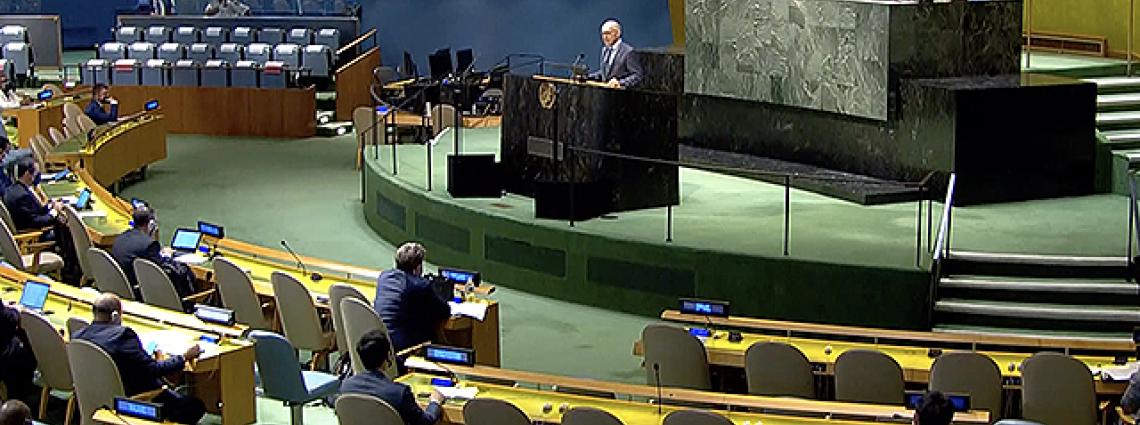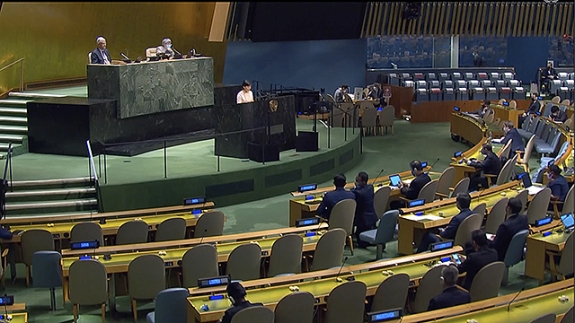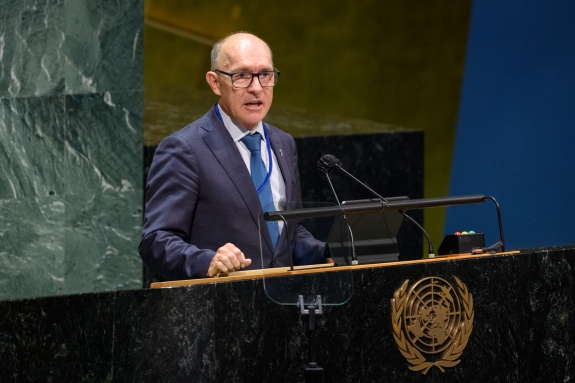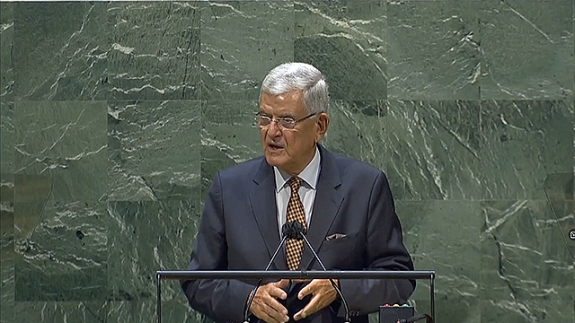IDANT 2021 – High-level calls at UN General Assembly for CTBT entry into force
The United Nations General Assembly has underlined the crucial role of the Comprehensive Nuclear-Test-Ban Treaty (CTBT) in the international nuclear arms control framework with a high-level plenary session to commemorate and promote the International Day Against Nuclear Tests (IDANT).
Representatives of numerous states joined in the historic General Assembly Hall in New York on 8 September to voice strong support for the CTBT and call for entry into force of the Treaty, which although almost universally recognised, requires ratification by eight more specific countries to become international law.
UN Secretary-General António Guterres, in a statement delivered on his behalf by the UN High Representative for Disarmament Affairs, Izumi Nakamitsu, called the CTBT “the centre-piece of global efforts to eliminate nuclear tests once and for all”.
This Treaty has the power to protect future generations from the human suffering and environmental catastrophe produced by nuclear tests. The CTBT is an invaluable contribution to nuclear non-proliferation. It is a powerful barrier to the development of new weapons, putting a brake on the nuclear arms race.
“Despite its near-universal acceptance, the full potential of the CTBT has not been realized as it has not yet come into force,” Guterres’ statement said. “I once again urge those States that have not ratified the Treaty to do so without delay. The eight States whose ratifications are necessary for the Treaty to enter into force have a special responsibility. But all States should commit to a legally binding prohibition.”
Addressing the UN General Assembly (Video) for the first time as Executive Secretary of the Comprehensive Nuclear-Test-Ban Treaty Organization (CTBTO), Robert Floyd pointed to the success of the CTBT in underpinning a near-universal norm against nuclear testing over the 25 years since it opened for signature.
The CTBT has proven to be an effective measure for nuclear non-proliferation and disarmament. But we cannot rest easy on the successes of yesteryear. We must acknowledge that our work is not yet fully done, and we must do all we can to bring the Treaty into force and complete its verification regime.
In that time, 185 States have signed and 170 have ratified the CTBT, and support continues to grow.
“However, the only way to put in place an enduring and verifiable prohibition on nuclear testing is through the entry into force and universalisation of the CTBT,” Floyd said. “The promise of a world without nuclear weapons is not possible unless the international community comes together on this important cause.”
The outgoing President of the General Assembly, Volkan Bozkır, recalled how nuclear tests have devastated communities and had a catastrophic impact on the environment.
“I would like to take this opportunity to call on states that have yet to sign or ratify the Comprehensive Nuclear-Test-ban treaty to do so as soon as possible,” he said.
Marked annually on 29 August, IDANT was established in 2009 by the General Assembly to remember the consequences of nuclear tests and express support for the CTBT. The date commemorates both the anniversary of Kazakhstan’s closure of the former Soviet Semipalatinsk nuclear test site in 1991, and the date the first Soviet nuclear test was conducted there in 1949.
8 Sep 2021
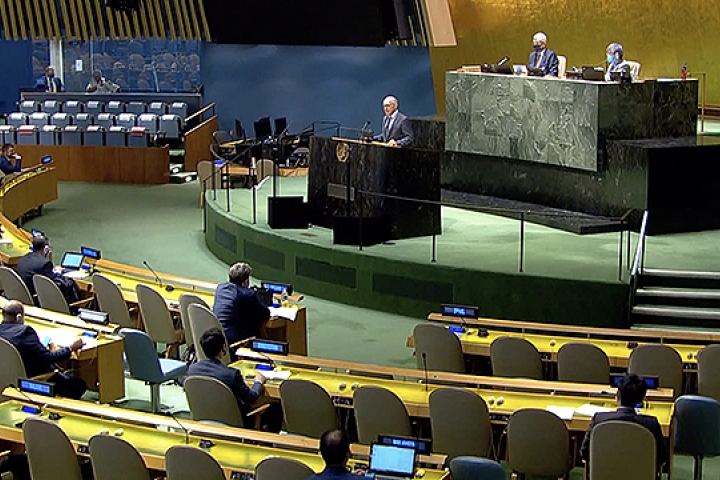
Representatives of numerous states join in the historic General Assembly Hall in New York.
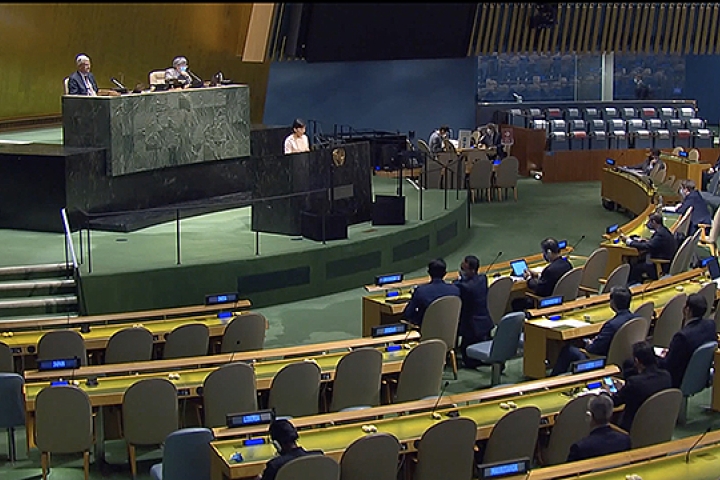
UN High Representative for Disarmament Affairs, Izumi Nakamitsu, delivers a statement on behalf of UN Secretary-General António Guterres.
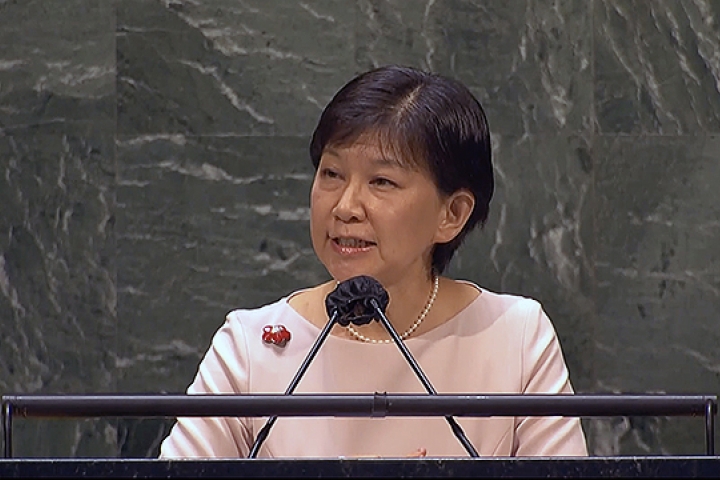
UN High Representative for Disarmament Affairs, Izumi Nakamitsu
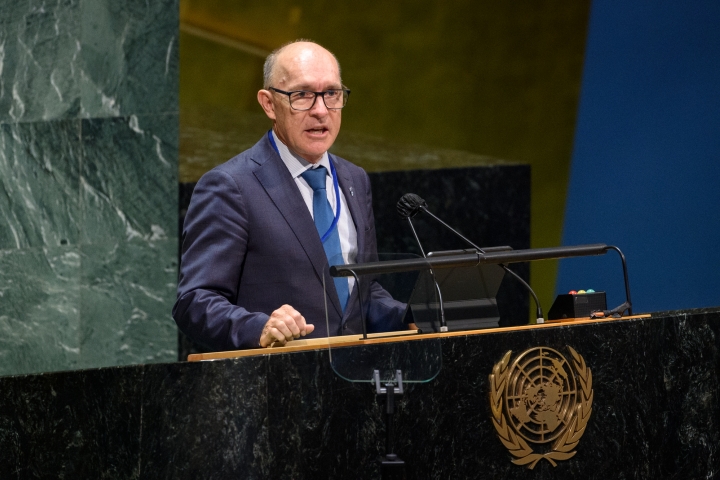
CTBTO Executive Secretary, Robert Floyd
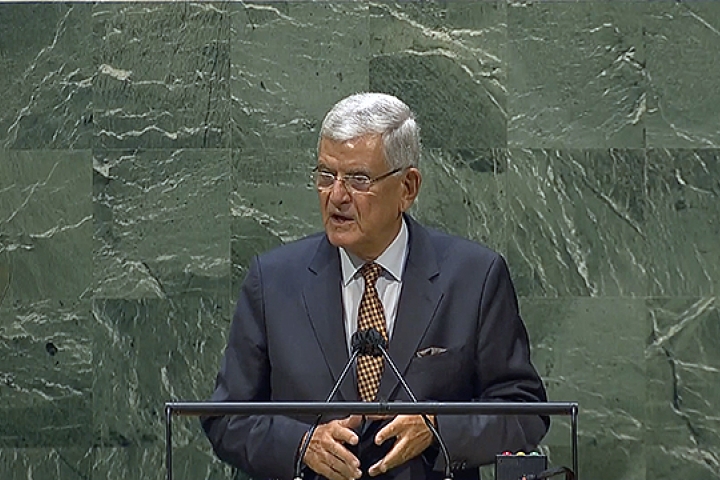
President of the General Assembly, Volkan Bozk?r
